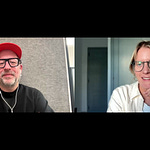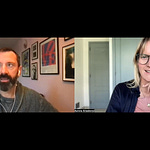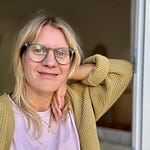I love my creative, multipassionate people. Like
, who I had the pleasure to interview a while ago. She’s gone from a career in trading to becoming a therapist to becoming a psychedelic guide. And after questioning all the marketing work that went into promoting her business, she’s taken a whole new approach to how she holds space and helps people heal.Alison and I spoke about:
how Alison went from working in a bank to becoming a medicine woman
how to be a professional in the self-help space without succumbing to sleazy, inauthentic marketing tactics
why Instagram is not the place you should choose your therapist or healer
how we can sell personal transformation in an ethical way.
This one is published as an audio episode so put your headphones on and go for a walk to enjoy the chat.
What I really appreciate about Alison is her strong commitment to working ethically even if that means taking a slower route than what would be available through intense social media marketing. She’s also a big advocate for community-building and creating real-life connections with people –something that I believe has become slightly forgotten in the age of remote work and global connectivity.
Words of Wisdom
Here are a few of my favourite words of wisdom from Alison from our chat. Have a think about them and share them with anyone who might need them today. Sharing is caring <3
On knowing her true calling [9:27]: “My life is the life of a medicine woman, of a healer. Like that is the number one thing in my life, whether that's making money with it or not.”
On selling holistic healing therapies [13:08]: “So, we have professionals like psychologists and therapists and massage therapists, and we have all these people who have trained to help us, like lawyers and doctors. They need to be paid because they are doing services that we need because this is how our culture operates. And this is very important. On the other hand, there are things like ceremony, ritual, community, rites of passage. And these things in general get really distorted when we're told, you have to pay $2,000 a year to be in this community where we're like family and we help each other. No, you are not.”
On her relationship with Instagram [15:25]: “To work with trauma and to hold space for people is a formation process. And knowing your scope is the first thing a therapist really gets taught. It's like when somebody's out of your scope, you refer them on. And this is something we've lost. And so I don't really want to be in that mix of, hey, come join me and not address that there's a fundamental issue here. Like it shouldn't be chosen on Instagram. There has to be a better way.”
On becoming aware of where her time should go [17:37]: “I was spending 85% of my time easily marketing. And I was like, this is no good. This is just not, no, you become a little media company. And it's like, I don't think so. No.”
On showing up authentically [20:37]: “I like to move away from the like teaching, preaching side of things and to move more into what you would say to a human being in front of you and to trust that and to trust that in our day-to-day lives, in our local communities where we are, that when we express ourselves differently, the right people are drawn to us. […] I don't think we need to stop welcoming people into our work, but it's about how we actually show up and the authenticity of that.”
On finding the right clients [22:47]: “The clients that we get are the clients that are meant for us. And we have to trust the speed of that flow and surrender to it and let life unfold things for us.”
To show ❤️ for Alison’s wisdom, subscribe to her newsletter and visit her website.
***
The High on Hope Rebel Series
This series of interviews features people who have taken a big leap of faith without knowing where exactly it will land. They’re also people who are breaking conventional rules about how to succeed in this world and figuring things out for themselves in inspiring ways. They’re the ones who publish a book even if people tell them it’s an impossible sell, leave social media even if it means slower business growth, choose ethical approaches to their work instead of maximising profit, follow a spiritual path rather than societal rules, share their stories even when they’re in the midst of personal turmoil, and open their hearts to talk about the good, the bad and the vulnerable.
They’re the type of rebels that the world needs more of.
They’re the people who create hope.
They’re the people I love to hang out with.
***
Thanks for tuning in and giving my newsletter your time and presence. Let me know what kind of thoughts this interview sparked in you via email or comment below.
And when in doubt, focus on becoming the hope you wish to feel in this world.
With kindness,
Aurora













